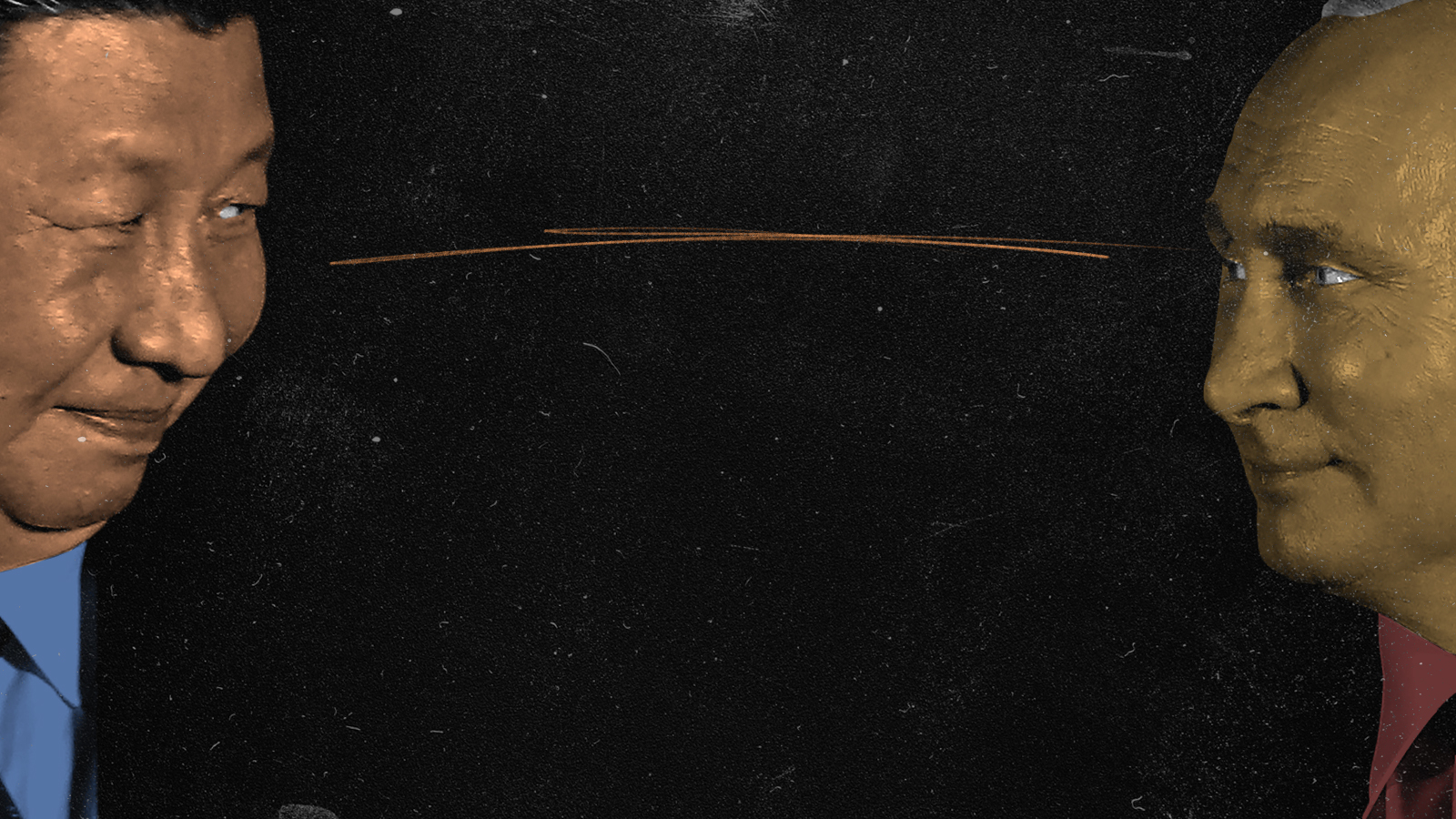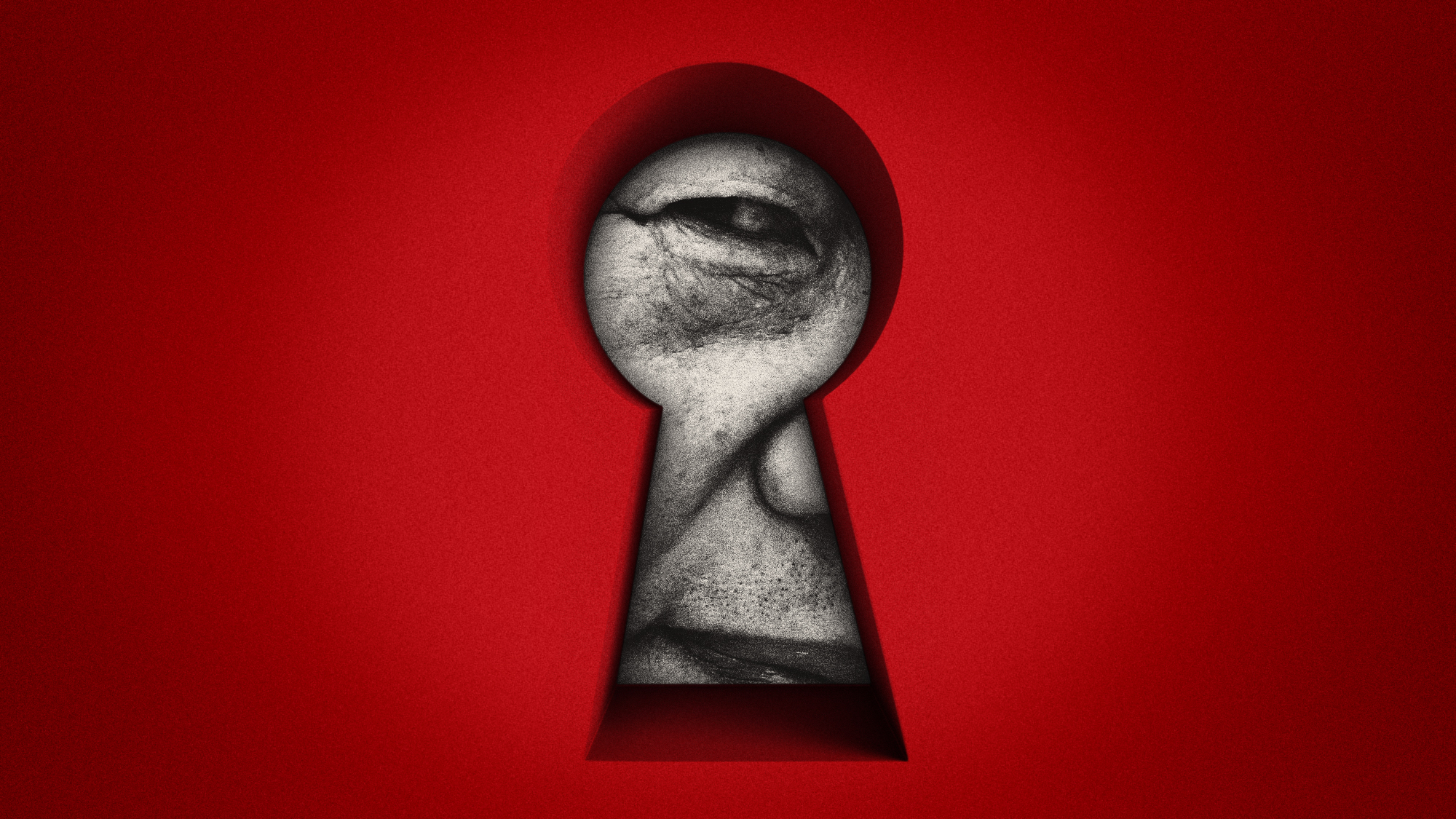The price China won't pay for Russia's war


A free daily email with the biggest news stories of the day – and the best features from TheWeek.com
You are now subscribed
Your newsletter sign-up was successful
If there's some good news coming out of Russian President Vladimir Putin's misbegotten war on Ukraine, it might be this: China's alliance with Russia appears to be mostly lip service.
That wasn't a sure bet. Just days before the invasion — during the Beijing Olympics — Putin and Chinese leader Xi Jinping issued a joint statement declaring a kind of team-up against U.S. power and NATO expansion, vowing cooperative efforts to assert some control over the internet and (more positively) fight climate change.
"Friendship between the two states has no limits, there are no 'forbidden' areas of cooperation," the statement said. As it turns out, there are some limits.
The Week
Escape your echo chamber. Get the facts behind the news, plus analysis from multiple perspectives.

Sign up for The Week's Free Newsletters
From our morning news briefing to a weekly Good News Newsletter, get the best of The Week delivered directly to your inbox.
From our morning news briefing to a weekly Good News Newsletter, get the best of The Week delivered directly to your inbox.
Reuters reported Thursday China is refusing to supply needed airplane parts to the Russian aviation industry, which has already been badly squeezed by American-led sanctions. That's a big deal: Boeing and Airbus jets make up most of the country's commercial aviation fleet — without access to those Western companies, Russia had hoped to turn to China as an alternative. But this week, U.S. Commerce Secretary Gina Raimondo said Chinese companies could be penalized for evading the sanctions. Now Russia might go begging for parts and help from Turkey and India.
China has also eased its controls on government exchange rates, letting the fast-collapsing value of the ruble fall against the yuan even more quickly. The ruble's decline was already making it much more expensive for Russians to buy Chinese goods — companies like Huawei and Xiaomi have cut their smartphone exports to Russia as a result — and now that process will only accelerate. For China, though, the decision makes sense: Sticking with the old rules "would require China's central bank to subsidize Russian buyers of Chinese goods by giving them more yuan for their rubles than market forces said Moscow's currency was worth," The Associated Press notes.
All of this doesn't mean Xi has abandoned Putin. China's foreign minister this week said relationships between the two countries are "rock solid," and China's state media outlets are amplifying Russian propaganda about the war. "That China has chosen to follow Russia's lead in deliberately mischaracterizing the war only serves to underline Beijing's closeness to Moscow," CNN's Simone McCarthy wrote this week.
Perhaps. But talk is cheap. It costs China little to promote the Russian narrative, which has the benefit of having an anti-U.S. bent. But China wants to stay integrated in a world economy that has suddenly cut off Russia from its embrace. For the moment, the actual dollars-and-rubles-and-yuan price of coming to Moscow's aid in tangible ways — in defiance of most of the developed world — might be a bit more than Beijing wants to pay.
A free daily email with the biggest news stories of the day – and the best features from TheWeek.com
Joel Mathis is a writer with 30 years of newspaper and online journalism experience. His work also regularly appears in National Geographic and The Kansas City Star. His awards include best online commentary at the Online News Association and (twice) at the City and Regional Magazine Association.
-
 Bad Bunny’s Super Bowl: A win for unity
Bad Bunny’s Super Bowl: A win for unityFeature The global superstar's halftime show was a celebration for everyone to enjoy
-
 Book reviews: ‘Bonfire of the Murdochs’ and ‘The Typewriter and the Guillotine’
Book reviews: ‘Bonfire of the Murdochs’ and ‘The Typewriter and the Guillotine’Feature New insights into the Murdoch family’s turmoil and a renowned journalist’s time in pre-World War II Paris
-
 Witkoff and Kushner tackle Ukraine, Iran in Geneva
Witkoff and Kushner tackle Ukraine, Iran in GenevaSpeed Read Steve Witkoff and Jared Kushner held negotiations aimed at securing a nuclear deal with Iran and an end to Russia’s war in Ukraine
-
 What is ‘Arctic Sentry’ and will it deter Russia and China?
What is ‘Arctic Sentry’ and will it deter Russia and China?Today’s Big Question Nato considers joint operation and intelligence sharing in Arctic region, in face of Trump’s threats to seize Greenland for ‘protection’
-
 Is the Chinese embassy a national security risk?
Is the Chinese embassy a national security risk?Today’s Big Question Keir Starmer set to approve London super-complex, despite objections from MPs and security experts
-
 Did Trump just end the US-Europe alliance?
Did Trump just end the US-Europe alliance?Today's Big Question New US national security policy drops ‘grenade’ on Europe and should serve as ‘the mother of all wake-up calls’
-
 Taiwan eyes Iron Dome-like defence against China
Taiwan eyes Iron Dome-like defence against ChinaUnder the Radar President announces historic increase in defence spending as Chinese aggression towards autonomous island escalates
-
 Why did the China spying case collapse?
Why did the China spying case collapse?Today’s Big Question Unwillingness to call China an ‘enemy’ apparently scuppered espionage trial
-
 What will bring Vladimir Putin to the negotiating table?
What will bring Vladimir Putin to the negotiating table?Today’s Big Question With diplomatic efforts stalling, the US and EU turn again to sanctions as Russian drone strikes on Poland risk dramatically escalating conflict
-
 The mission to demine Ukraine
The mission to demine UkraineThe Explainer An estimated quarter of the nation – an area the size of England – is contaminated with landmines and unexploded shells from the war
-
 How will the MoD's new cyber command unit work?
How will the MoD's new cyber command unit work?Today's Big Question Defence secretary outlines plans to combat 'intensifying' threat of cyberattacks from hostile states such as Russia
